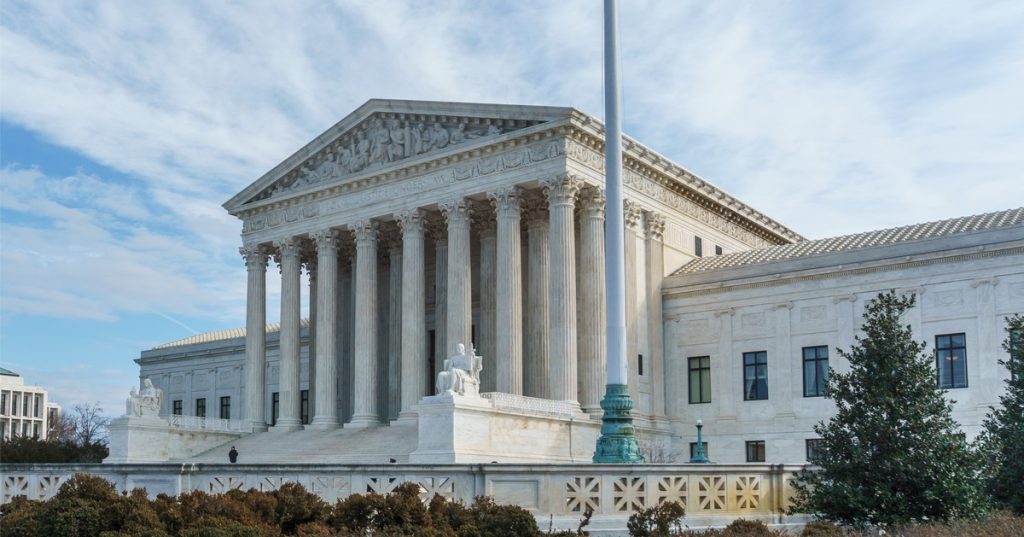Nicholas John Roske shocked the country when he pleaded guilty earlier this year to an attempted assassination of Supreme Court Justice Brett Kavanaugh. The facts are stark and unsettling: a planned attack on a member of the highest court is an attack on the rule of law itself. This story has kept unfolding, and each development asks tough questions about accountability and public safety.
Recent filings show Roske now identifies as “Sophie Roske” and asks to be referred to with female pronouns in court papers going forward. A news report first flagged the change, and court documents from the defense confirm the request. The matter raises practical questions about courtroom procedure and public perception, and those questions deserve clear answers from the legal system.
Roske’s attorney explained the name and pronoun request in filings submitted to the court, and those filings will be part of the public record. “The case is captioned as United States v. Nicholas John Roske,” the court filing acknowledged before stating, “That name remains Ms. Roske’s legal name, and she has not asked to recaption the case.” Those lines are formal, but they also show the tension between legal formality and the personal changes a defendant may claim.
“Out of respect for Ms. Roske, the balance of this pleading and counsel’s in-court argument will refer to her as Sophie and use female pronouns,” the filing went on to add. Courts must balance respect with practicality, especially in cases that touch national security and the integrity of the judiciary. Republican voters want to see consistency and firmness when someone has already admitted planning a violent crime.
DOJ is seeking a 30-year sentence for Roske
The Department of Justice is asking for a 30-year sentence in the case, reflecting the seriousness of an attempt on a Supreme Court justice. This is not a minor offense or a youthful prank; it was a premeditated plan aimed at the heart of our legal system. Republicans should—and do—expect sentences that reflect the gravity of such attacks on public institutions.
“This attempt against the life of a Supreme Court Justice was an attack on the entire judicial system that cannot go unpunished,” Attorney General Pam Bondi said in response to the filing. Her words underscore the principle at stake: if attacks on judges can go unpunished, the entire judicial order is at risk. Reckoning with that reality means prosecutors and courts must be unflinching when meting out justice.
“This Department of Justice condemns political violence and our prosecutors will ensure that this disturbed individual faces severe consequences for his deranged actions,” she insisted. Those are strong words that reflect a demand for accountability, and many conservatives will argue they must be matched by firm sentencing. The system must deter copycats and protect officials who serve the public under difficult circumstances.
The DOJ filing further argued for an “unequivocal, clear, and strong message that attempted violence and threats of violence against members of the judiciary — as well as other public and federal officials — cannot and will not be tolerated, and will be justly and severely condemned.” That language is pointed and meant to signal deterrence, and it echoes a basic conservative demand: law and order must be enforced without favoritism or hesitation.
Roske discussed assassination plans on messaging service
Beyond the courtroom filings, investigative material shows Roske discussing plans and mindset on an online messaging platform prior to the plot. Those posts offer a chilling window into how isolated grievances and extremist thinking can evolve into concrete threats to public officials. We need to be honest about the radicalizing effect of private online spaces and the role they played here.
“My mental health is too poor for me to fear death,” the attempted assassin declared in a post which was dated March 18, 2022. That line captures both the danger and the despair that can drive someone toward violence, but despair is not an excuse for attempted murder. Courts must weigh mental health explanations carefully, but public safety comes first.
“But prison sounds worse. To be monitored to the point where you can’t even kill yourself. So if I did kill someone I would definitely try to get away with it,” he asserted. Those words are literal articulations of intent to commit and evade a violent crime, and they demonstrate the premeditation that justifies a heavy sentence. Republicans will rightly point to this as reason the system must be both compassionate where appropriate and uncompromising where lives and institutions are endangered.

1 Comment
Just hang the evil dude and forget he ever lived.